The Spiritual Meaning of a Lion: A Symbol of Strength and Courage
Lions have long been revered as powerful spiritual symbols, embodying strength, courage, and leadership. Their majestic presence in the natural world and their significant roles in various cultural and religious contexts have cemented their place as enduring icons of spiritual meaning. This article delves deep into the spiritual essence of lions, exploring their historical, cultural, and personal significance.
Introduction: Why Lions Hold Spiritual Significance
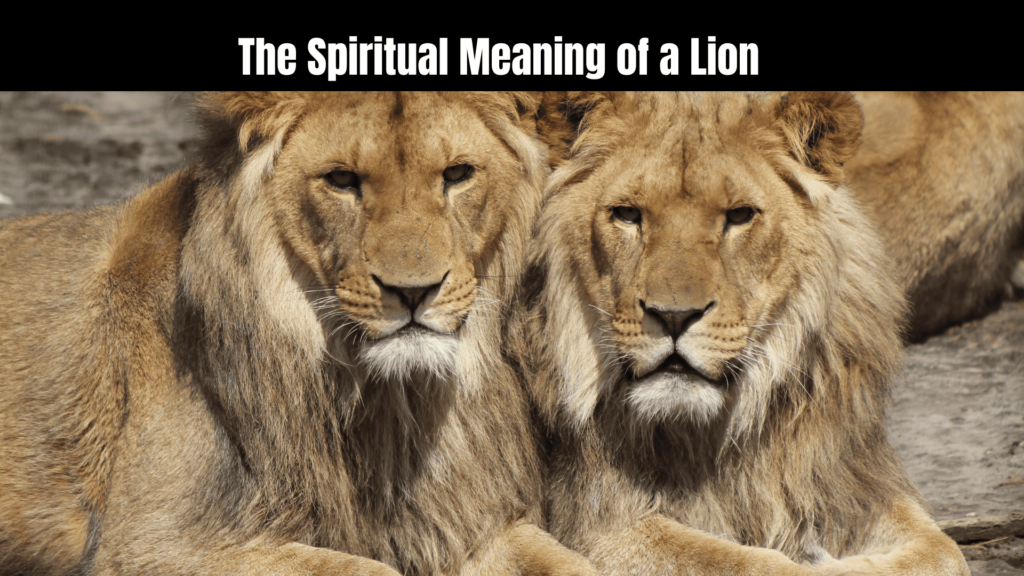
Lions captivate the imagination with their regal demeanor and unparalleled strength. Known as “the king of the jungle,” lions are often associated with qualities that humans admire—fearlessness, authority, and wisdom. Beyond their physical prowess, lions carry deep spiritual meanings that resonate across different traditions. Whether in dreams, meditation, or daily life, the presence of a lion often signals a call to embody courage and authenticity.
The lion’s spiritual symbolism transcends geographical boundaries, appearing in myths, religious texts, and even modern self-help narratives. This universality suggests that lions tap into a shared human aspiration: to stand tall in the face of challenges and lead with integrity.
Historical and Cultural Perspectives on Lions
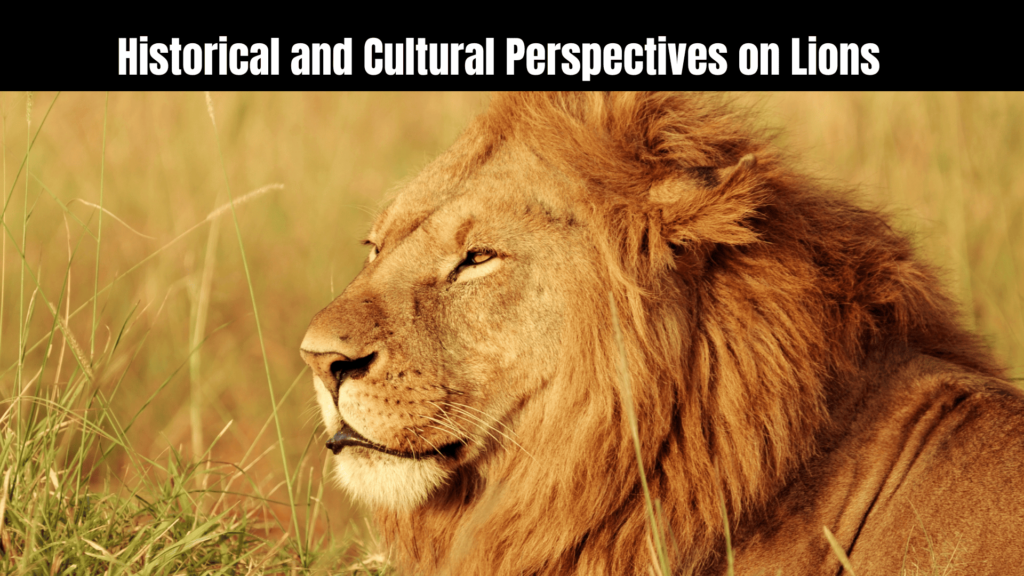
The lion has been a potent symbol across civilizations for thousands of years. From ancient mythology to modern cultural narratives, lions have consistently represented power, courage, and divine authority. Their symbolic significance reflects humanity’s admiration for their physical strength and leadership within the animal kingdom.
Lions in Ancient Mythology and Folklore
In ancient mythologies, lions often played dual roles as protectors and challengers. Their fierce presence symbolized the triumph of good over evil and the resilience of the human spirit.
- Egyptian Mythology:
Lions were deeply revered in ancient Egypt. The lion-headed goddess Sekhmet was a powerful deity associated with war, protection, and healing. As the “Eye of Ra,” she embodied both destructive and restorative forces, symbolizing balance in the universe. Lion statues, such as the Sphinx, were built to guard sacred spaces and protect against negative energies. - Mesopotamian Cultures:
Lions were a prominent feature in Mesopotamian art and myth. They were often depicted alongside kings in bas-reliefs, symbolizing the ruler’s strength and divine favor. The epic of Gilgamesh, one of the earliest known works of literature, features the hero battling lions, reflecting themes of courage and dominance. - Greek Mythology:
The Nemean Lion is one of the most famous mythical lions. As part of his Twelve Labors, Hercules was tasked with slaying the beast, whose impenetrable hide made it invulnerable to weapons. This story highlights the lion’s association with seemingly insurmountable challenges and the heroic effort required to overcome them.
Lion Symbolism Across Cultures
Lions have held diverse meanings across different societies, each interpreting the lion’s attributes in ways that aligned with their cultural values and beliefs.
- African Cultures:
In Africa, lions are seen as symbols of leadership and community. Many African tribes view the lion as a spiritual guide, embodying bravery and protection. Stories of lions guiding or aiding tribes in times of need underscore their role as guardians of the natural and spiritual realms. - Asian Traditions:
In Asian cultures, lions are often seen as protectors. In China, “Foo Lions” or “Guardian Lions” are common architectural features at temples, palaces, and homes. These statues, often seen in pairs, symbolize balance, harmony, and protection against evil spirits. Similarly, in Indian culture, lions are associated with divine power and are seen as vahanas (vehicles) of powerful deities like Durga. - European Heraldry:
Lions have been a central motif in European heraldry for centuries. Often depicted as rampant (standing on hind legs), lions represented bravery, nobility, and divine right to rule. They were commonly used on coats of arms and flags, signaling a lineage of courage and honor.
The Lion as a Global Symbol of Power and Majesty
The lion’s consistent portrayal as a symbol of power is no coincidence. Their dominance in the wild, commanding presence, and unique social structure have inspired reverence and admiration worldwide. Whether as protectors in African tribes, guardians of temples in Asia, or emblems of royal authority in Europe, lions embody the qualities of strength, courage, and leadership that humanity aspires to emulate.
By examining the historical and cultural perspectives of lions, we uncover a shared human fascination with these majestic creatures. This enduring admiration speaks to the universal themes of resilience, protection, and the triumph of the human spirit, making lions timeless icons of spiritual significance.
Symbolic Attributes of a Lion
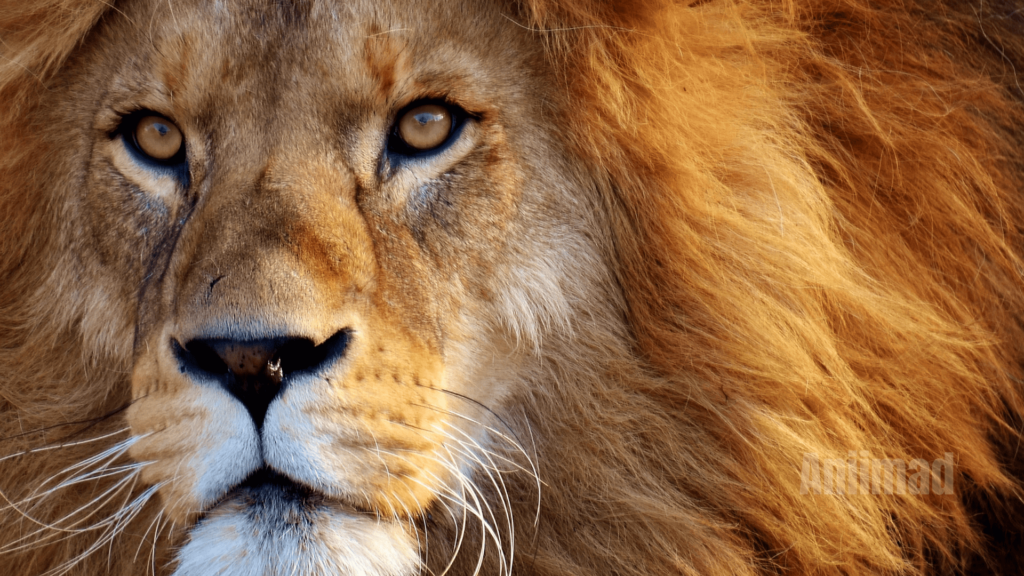
The lion is one of the most universally recognized symbols in the world, representing a wide array of attributes that resonate deeply within the human psyche. These qualities, derived from the lion’s behavior and presence in the wild, have been imbued with profound spiritual and metaphorical meanings across cultures and traditions.
Courage and Leadership
Lions are synonymous with courage, often referred to as “the king of the jungle” for their fearless dominance over their environment. This association with bravery is rooted in their readiness to face any challenge to protect their pride or territory.
- Courage: The lion’s fearless nature inspires individuals to confront their fears and challenges with confidence. It reminds us that true courage isn’t the absence of fear but the ability to act in spite of it.
- Leadership: Lions are natural leaders, guiding their pride with strength and authority. Their leadership isn’t just about dominance but also about ensuring the well-being of their community. In human terms, the lion symbolizes the responsibility and wisdom needed to lead others with integrity and fairness.
Power and Authority
The lion’s physical power and commanding presence make it a natural emblem of authority. Its roar, which can be heard up to five miles away, is a declaration of dominance and an assertion of its rightful place in the hierarchy of the wild.
- Power: Spiritually, the lion represents inner strength and the power to overcome obstacles. It serves as a reminder that we possess the strength within us to face life’s adversities and emerge victorious.
- Authority: Lions are often associated with sovereignty and governance. Monarchs throughout history have adopted the lion as a symbol of their reign, reflecting their role as protectors and rulers of their people.
Protection and Guardianship
Lions are fiercely protective of their pride, safeguarding their territory and ensuring the survival of their family. This protective nature has made them symbols of guardianship in many spiritual and cultural contexts.
- Protection: Lions act as protectors, warding off threats and ensuring the safety of their loved ones. In spiritual practices, the lion is invoked as a guardian spirit, providing security and shielding against harm.
- Guardianship: Statues of lions often adorn temples, palaces, and sacred spaces, serving as sentinels that keep negative energies at bay. This guardian role reinforces the lion’s association with vigilance and responsibility.
Resilience and Perseverance
Lions exhibit remarkable resilience in the face of adversity. Whether it’s hunting in harsh environments or defending their territory against rival predators, lions demonstrate persistence and determination.
- Resilience: The lion teaches us to endure difficulties with grace and strength. It symbolizes the ability to bounce back from setbacks and emerge stronger.
- Perseverance: The lion’s role as a hunter, requiring patience and focus, reflects the importance of persistence in achieving one’s goals. It encourages individuals to remain steadfast in their pursuits, even when success seems elusive.
Dignity and Honor
The lion’s regal posture and composed demeanor exude a sense of dignity. This attribute has made the lion a symbol of honor and respect, reflecting the importance of maintaining integrity and self-respect in all circumstances.
- Dignity: Lions embody grace under pressure, reminding us to carry ourselves with poise and confidence, regardless of the situation.
- Honor: Historically, the lion has been a symbol of noble values and ethical leadership. It encourages us to act with integrity and to uphold our principles.
Balance and Harmony
Although lions are often associated with power and dominance, they also embody balance and harmony. In the natural world, lions contribute to maintaining ecological equilibrium, ensuring the health of their ecosystem.
- Balance: The lion’s dual role as a fierce predator and a nurturing guardian reflects the importance of balance in life. It encourages us to harmonize our strength with compassion and our ambition with humility.
- Harmony: In spiritual practices, lions symbolize the alignment of strength and wisdom, guiding individuals to find inner peace while striving for external success.
Lions in Religious and Spiritual Contexts
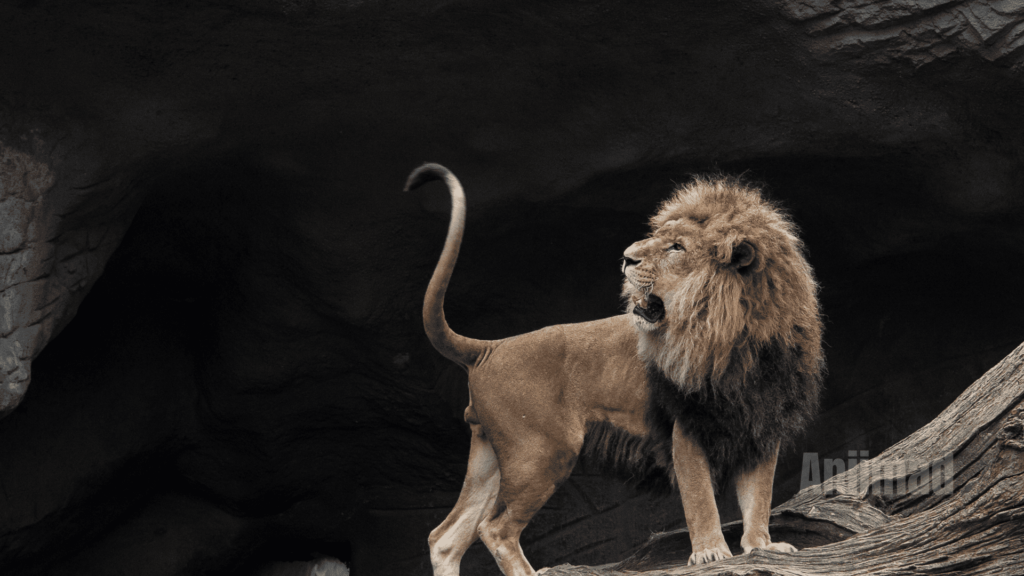
Lions hold profound significance in various religious and spiritual traditions. Often regarded as divine symbols of power, protection, and wisdom, their presence transcends geographical and cultural boundaries, resonating deeply within the human spirit. The lion’s role in religious and spiritual contexts reflects its qualities as a protector, leader, and embodiment of moral strength.
Lions in Christianity: The Lion of Judah
In Christianity, the lion is a powerful and sacred symbol, often associated with Jesus Christ and divine authority. The “Lion of Judah” is a central biblical concept representing courage, leadership, and the messianic lineage of Christ.
- The Lion of Judah:
This term originates from the Old Testament, where Jacob refers to his son Judah as a lion’s cub (Genesis 49:9). The lion becomes a symbol of the tribe of Judah, representing strength, leadership, and divine favor. In the New Testament, Jesus is described as the Lion of Judah in the Book of Revelation (Revelation 5:5), symbolizing His role as the conquering King and Savior. - Symbol of Resurrection and Victory:
The lion is often depicted in Christian art as a symbol of resurrection, based on the belief that lion cubs are born dead and brought to life by their father’s breath after three days. This imagery aligns with the resurrection of Christ, emphasizing triumph over death and evil.
Lions in Hinduism and Buddhism: Dharma and Divine Power
In Hinduism and Buddhism, lions symbolize strength, protection, and the upholding of moral order (dharma). They are often associated with deities and spiritual enlightenment.
- Hinduism:
Lions appear prominently in Hindu mythology as vehicles (vahanas) of powerful deities. The goddess Durga is often depicted riding a lion, representing her dominance over evil forces and her ability to protect the righteous. This imagery highlights the lion as a symbol of divine power, courage, and justice. - Buddhism:
In Buddhism, lions are seen as protectors of dharma, the cosmic law and order. The “Lion’s Roar” is a metaphor for the teachings of Buddha, signifying their transformative and all-encompassing power. Statues of lions frequently guard Buddhist temples, symbolizing strength and vigilance in the spiritual journey.
Lions in Indigenous Beliefs and Tribal Traditions
In Indigenous cultures around the world, lions often embody the spirit of protection, guidance, and leadership. Many tribes regard the lion as a sacred animal and a spiritual messenger.
- African Traditions:
In African tribal cultures, lions are revered as symbols of bravery and guardianship. Shamans and spiritual leaders may invoke the spirit of the lion during rituals to gain strength, courage, and wisdom. The lion’s roar is seen as a spiritual call, reminding individuals to reconnect with their inner power. - Native American Symbolism:
Although lions (or mountain lions) are not universally recognized across all Native American tribes, they hold special significance in some, representing guardianship and a connection to the spiritual realm. The lion spirit animal is often invoked during vision quests and ceremonies to seek guidance and clarity.
Lions in Islamic Tradition
In Islamic tradition, the lion is not as prominent as in other religions but is still respected as a symbol of bravery, justice, and loyalty. The term “Asad” (lion) is used as a title for Ali ibn Abi Talib, the cousin and son-in-law of Prophet Muhammad. Ali, known as “Asadullah” (the Lion of God), is celebrated for his courage, wisdom, and unwavering faith.
Lions in Ancient Pagan and Mythological Religions
In ancient pagan religions, lions often served as divine symbols of protection and strength. They were closely tied to deities and spiritual forces.
- Egyptian Mythology:
The lion-headed goddess Sekhmet embodied both destruction and healing. She was a protector of the pharaohs, symbolizing the balance of power and compassion. Lions also adorned Egyptian temples as statues, guarding sacred spaces against negative energies. - Mesopotamian Beliefs:
In Mesopotamian mythology, lions were associated with Ishtar, the goddess of love and war. Lions symbolized her fierce, protective nature and her ability to destroy enemies while nurturing allies.
Lions as Guardians in Religious Architecture
Lions frequently appear as guardians in religious art and architecture, symbolizing protection and divine presence. Their statues often flank the entrances of temples, palaces, and sacred spaces.
- Guardian Lions (Foo Lions):
In Chinese spiritual traditions, guardian lions, often called “Foo Lions” or “Imperial Lions,” are placed outside temples and homes to ward off evil spirits. Male lions represent strength and protection, while female lions symbolize nurturing and family well-being. - Lions in European Cathedrals:
In medieval Europe, lions were carved into church entrances, symbolizing the strength of faith and protection against spiritual adversaries.
Dreaming of Lions: Spiritual Interpretations
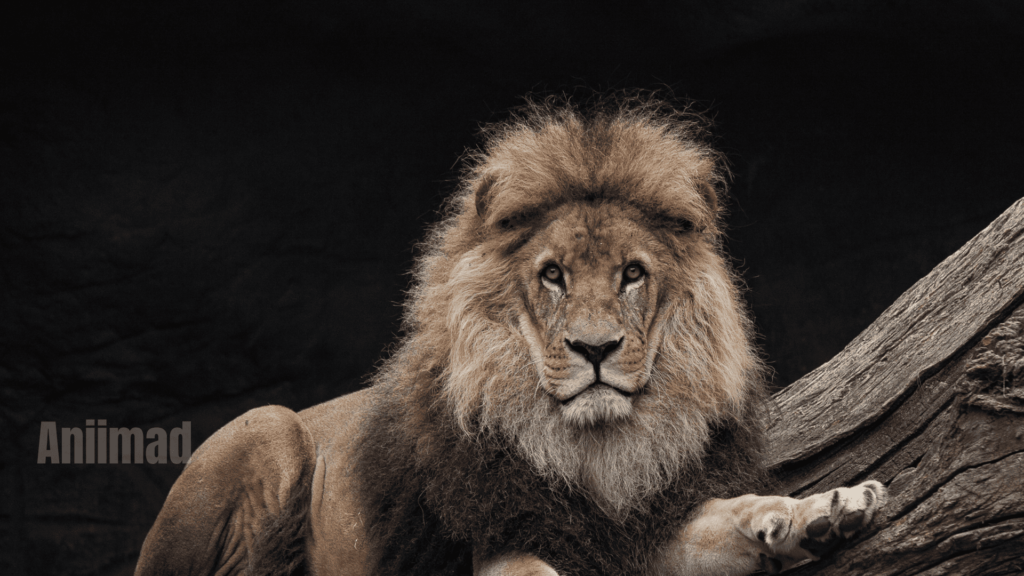
Dreams involving lions are often profound and carry significant spiritual messages. Lions, as symbols of strength, courage, and authority, can reflect various aspects of one’s personal and spiritual life. Their presence in dreams may serve as a mirror to our inner emotions, challenges, or spiritual growth. Understanding the context and emotions surrounding the dream can help decode its meaning.
Lions as Symbols of Strength and Courage in Dreams
A lion appearing in your dream often represents inner strength and bravery. This interpretation is particularly relevant when the dream involves overcoming challenges or asserting dominance.
- Facing Challenges:
If you dream of a lion standing firm or roaring, it might symbolize your need to confront a difficult situation in your waking life. The dream encourages you to harness your inner courage and face obstacles with confidence. - Personal Empowerment:
A lion walking beside you in a dream can symbolize self-assurance and leadership. It may reflect your growing confidence and ability to take charge of your life or a particular situation.
Lions Representing Leadership and Authority
Dreams of lions often reflect themes of leadership and control. If the lion in your dream is calm and composed, it may signify your ability to lead with wisdom and poise.
- Positive Leadership:
Seeing yourself taming or interacting peacefully with a lion suggests that you are in control of your personal power. It may indicate that you are stepping into a leadership role or gaining recognition for your abilities. - Authority Challenges:
A lion attacking or threatening you in a dream could indicate conflicts with authority figures or struggles with asserting your own power. It may signal a need to balance authority with humility.
Spiritual Guidance and Protection
Lions in dreams are often interpreted as spiritual guardians. Their appearance may signify that you are being protected or guided by higher powers.
- Guardian Spirit:
A lion standing guard or watching over you in a dream symbolizes spiritual protection. It may suggest that you are being shielded from harm or guided through a challenging period in your life. - Divine Guidance:
If you dream of a lion leading you through unfamiliar terrain, it could represent divine intervention or guidance. This dream encourages you to trust in the journey and follow your intuition.
Emotional and Spiritual Balance
The behavior and demeanor of the lion in your dream can reflect your emotional and spiritual state. A calm lion may signify inner peace, while an aggressive lion could point to unresolved conflicts.
- Inner Harmony:
A serene lion lying in a peaceful setting symbolizes emotional balance and spiritual alignment. This dream encourages you to maintain harmony between your inner and outer worlds. - Unresolved Emotions:
An angry or restless lion in a dream may indicate suppressed anger, fear, or frustration. This dream suggests that it’s time to address these emotions and restore balance in your life.
Common Lion Dream Scenarios and Their Meanings
- Being Chased by a Lion:
This dream may signify running away from a significant challenge or fear in your life. It urges you to confront what you’ve been avoiding. - Fighting a Lion:
Engaging in a battle with a lion represents a personal struggle, possibly with your own instincts or an external challenge. Winning the fight symbolizes triumph and resilience. - Taming a Lion:
This dream reflects mastery over your fears or instincts. It suggests that you are gaining control over aspects of yourself that once felt overwhelming. - A Lion Protecting You:
A lion acting as your protector signifies spiritual guidance and safety. It may indicate that you are being watched over by a higher power. - A Group of Lions (a Pride):
Seeing multiple lions represents community, family, or collective strength. This dream may point to the importance of collaboration or support in your life.
Symbolism Based on Lion Behavior
- Roaring Lion:
A roaring lion in a dream signifies assertiveness and the need to voice your opinions. It encourages you to speak up and be heard. - Sleeping Lion:
A sleeping lion represents untapped potential or dormant power within you. It suggests that the time may be ripe to awaken these abilities. - Caged Lion:
A caged lion indicates feelings of restriction or suppressed emotions. This dream encourages you to break free from limitations and express your true self.
Spiritual Connection and Transformation
Dreaming of a lion can also symbolize spiritual transformation. It may reflect your journey toward enlightenment or self-discovery.
- Awakening Power:
A lion appearing in a dream may indicate that you are awakening to your inner power and recognizing your spiritual potential. - Guided Transformation:
If the lion is leading or guiding you, it suggests that you are undergoing a spiritual transformation with divine assistance.
Frequently Asked Questions About the Spiritual Meaning of a Lion
- What does a lion symbolize spiritually?
A lion represents courage, strength, and leadership in spiritual contexts. - Is the lion a positive or negative symbol in spirituality?
Generally positive, the lion symbolizes protection, bravery, and authority. - How does the lion’s symbolism differ across cultures?
While universally associated with strength, specific meanings vary, from guardianship in Asia to leadership in Africa. - What does it mean if a lion appears in meditation or prayer?
It often signifies a call to embrace inner strength and resolve. - How can I connect with the lion as a spirit animal?
Through meditation, visualization, and studying its qualities. - What spiritual practices involve lions?
Rituals for courage, leadership, and personal empowerment often invoke lion symbolism.
Conclusion: Embracing the Lion’s Spiritual Legacy
The lion’s spiritual meaning offers timeless lessons in courage, leadership, and self-empowerment. By embracing these qualities, we can navigate life’s challenges with grace and determination, embodying the lion’s majestic spirit in our own lives.